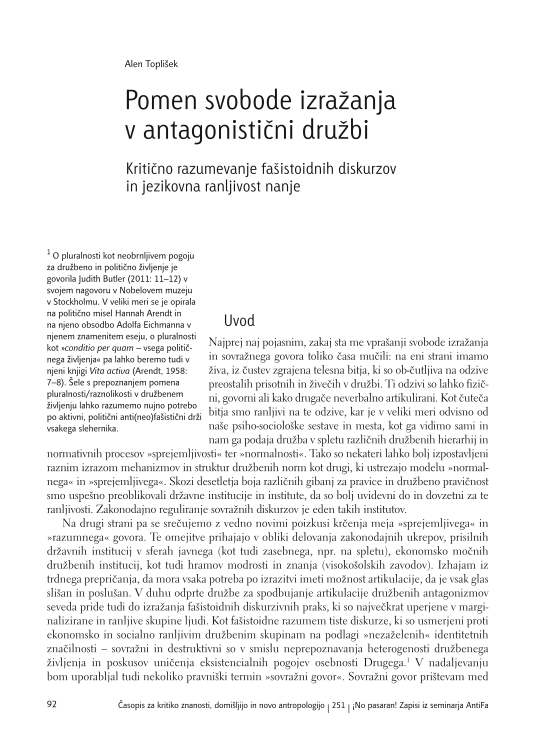In this article I will address the complex relations between linguistic vulnerability as it is understood and construed by Judith Butler, and the freedom of expression in an antagonistic society that was conceptualized by Chantal Mouffe. The purpose of this article is to move away from the dominant moralizing discourse which tackles the emergence of fascistic and hateful discursive practices uncritically and in a politically neutral manner, and then offer an alternative view of the paradox between the freedom of expression and the regulation of hate speech. First, I concentrate on the performative functioning of words that injure and the question of how to subvert this discursive subjection that the hate speaker is seeking to constitute in a way that will enable the critical agency of the one injured. Butler’s post-structuralist view on the performance of discursive acts reveals potential sites and possibilities for critical agency. With her critical analysis of moderate consensus politics, Mouffe identifies the narrowing of the political space for articulation of antagonistic relations in society as the effect of the dominant post-political rationality. At the end I come to the conclusion that generating open discursive spaces is of crucial importance for the facilitation of critical subversion of hateful contents and restoring a state of normality.




